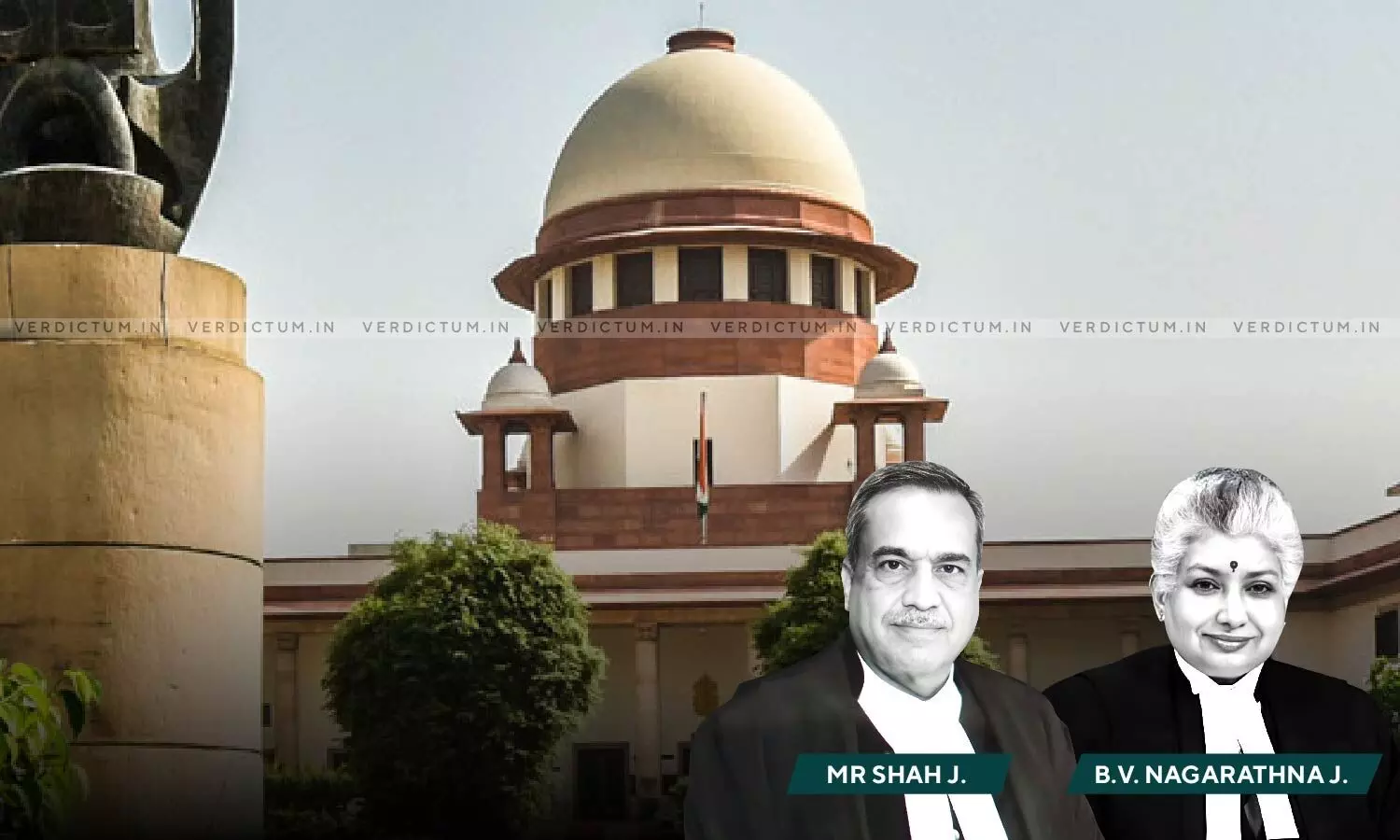
ITA: Amendment Brought To Section 153C Vide Finance Act Is Applicable To Searches Conducted U/s. 132 Before June 1, 2015- SC
 |
|The Supreme Court while dealing with a batch of appeals has held that the amendment brought to Section 153C of the Income Tax Act, 1961 vide Finance Act, 2015 shall be applicable to searches conducted under Section 132 of the Income Tax Act, 1961 before June 1, 2015, i.e., the date of the amendment.
The Court observed that any interpretation, which may frustrate the very object and purpose of the Act or Statute shall be avoided by the Court.
The two-Judge Bench of Justice M.R. Shah and Justice B.V. Nagarathna held, “… the amendment brought to Section 153C of the Act, 1961 vide Finance Act, 2015 shall be applicable to searches conducted under Section 132 of the Act, 1961 before 01.06.2015, i.e., the date of the amendment. The impugned common judgment and order passed by the High Court, therefore, deserves to be quashed and set aside and is accordingly quashed and set aside. However, as before the High Court respective assessment orders were challenged mainly on the aforesaid issue, which is now answered in favour of the Revenue as above, we reserve the liberty in favour of the respective assessees to challenge the assessment orders before CIT (A) on any other grounds which may be available and it is observed that if said appeals are preferred within four weeks from today, the same be considered in accordance with law and on their own merits, on any other grounds.”
The Bench said that the judgment passed by the High Court is unsustainable and answered the question i.e., “Whether the amendment brought to Section 153C of the Income Tax Act, 1961 vide Finance Act, 2015 would be applicable to searches conducted under Section 132 of the Act, 1961 before 01.06.2015, i.e., the date of amendment?”, in favour of the Revenue and against the assessees.
ASG K.M. Nataraj appeared for the appellant/Revenue while Advocate Purvish Jitendra Malkan appeared for the respondent/assessee.
Facts -
Aggrieved with order of the Gujarat High Court whereby it quashed the notice under Section 153C of the Income Tax Act, 1961 issued to the respondent i.e., the assessee, and set aside the consequent Assessment Orders (where assessment stood completed) by holding that Section 153C of the Act, 1961 (as amended by Finance Act, 2015) would not apply to searches under Section 132 of the Act, 1961 initiated before the date of the amendment, the Revenue preferred the appeal before the Apex Court.
The question that arose for consideration before the Court was whether an amendment brought to Section 153C of the Income Tax Act, 1961 vide Finance Act, 2015 would be applicable to searches conducted under Section 132 of the Act, 1961 before June 1, 2015, i.e., the date of the amendment.
The Supreme Court while considering the aforesaid question asserted, “In the case of Girdhari Lal & Sons (supra), it is observed and held by this Court that once the primary intention is ascertained and the object and purpose of the legislation is known, it then becomes the duty of the Court to give the statute a purposeful or a functional interpretation. It is further observed that the primary and foremost task of a court in interpreting a statute is to ascertain the intention of the legislature, actual or imputed.”
The Court noted that even the unamended Section 153C of ITA pertains to the assessment of income of any other person and that the object and purpose of Section 153C are to address persons other than the searched person.
“Insofar as the submission on behalf of the respective respondents – assessees that by way of amendment to Section 153C by Finance Act, 2015, it brings into its fold, the assessees – persons, who were not so far covered by it and, therefore, it affects the substantive rights of the assessees and, hence, it should not be made applicable retrospectively, is concerned, the submission seems to be attractive but deserves to be rejected”, observed the Court.
The Court further noted that even as per the unamended Section 153C of ITA, the proceeding against other persons (other than the searched person) was on the basis of the seizure of books of account or documents seized or requisitioned “belongs or belong to” a person other than the searched person.
“If the interpretation as canvassed on behalf of the respective respondents is accepted, in that case, even the object and purpose of Section 153C namely, for assessment of income of any other person (other than the searched person) shall be frustrated”, said the Court.
Accordingly, the Court allowed the appeals and set aside and quashed the judgment of the High Court.
Cause Title- Income Tax Officer v. Vikram Sujitkumar Bhatia